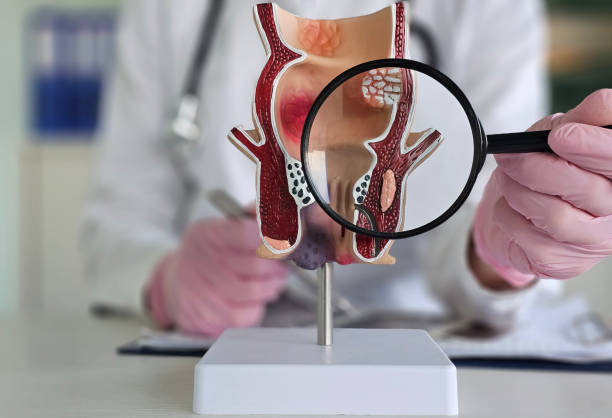Hemorrhoid treatment in Riyadh has become increasingly sought-after as more individuals seek effective relief from this common condition. Hemorrhoids, commonly referred to as piles, are swollen veins in the lower rectum and anus. These occur either internally (inside the rectum) or externally (under the skin around the anus). While not life-threatening, they can cause significant discomfort, including itching, pain, swelling, and bleeding during bowel movements. They are particularly common in people who strain during defecation, sit for long hours, are pregnant, or suffer from chronic constipation or obesity. Thankfully, advanced medical solutions available in Riyadh offer patients a wide range of safe, minimally invasive, and effective treatment options.
Why Hemorrhoids Are So Common Today
Modern Lifestyles Are a Big Factor
Our increasingly sedentary lifestyle, paired with poor dietary habits, contributes to the rising cases of hemorrhoids. A lack of physical activity and low fiber intake can lead to constipation, one of the primary causes of hemorrhoid development.
Ignoring Early Signs Can Worsen the Condition
Many people ignore the early symptoms of hemorrhoids such as mild itching or slight bleeding. This delay often allows the condition to worsen, requiring more intensive treatment down the road.
Importance of Timely Diagnosis
Early Evaluation Helps Avoid Complications
Recognizing the signs and seeking medical consultation early ensures simpler treatment and faster recovery. When left untreated, hemorrhoids can lead to complications like thrombosis, prolapse, or chronic blood loss.
Physical Examination & Diagnosis
A simple visual examination, possibly accompanied by a digital rectal exam or an anoscopy, is often sufficient to diagnose the issue accurately.
Hemorrhoid Types and Symptoms
Internal Hemorrhoids
These form inside the rectum and are usually painless but may cause bleeding during bowel movements. Sometimes, they can prolapse, pushing out of the anus, leading to discomfort.
External Hemorrhoids
These develop under the skin around the anus and can be painful, especially during bowel movements or when sitting. Swelling, irritation, and even lumps around the anal area are common symptoms.
Hemorrhoid Grades: What You Need to Know
Hemorrhoids are classified into four grades:
-
Grade I: Slight swelling inside the rectum without prolapse.
-
Grade II: Prolapse occurs during straining but retracts on its own.
-
Grade III: Requires manual push back after prolapse.
-
Grade IV: Permanent prolapse that cannot be retracted.
Options for Hemorrhoid Treatment in Riyadh
For those suffering from symptoms and seeking professional help, Hemorrhoid treatment in Riyadh offers a range of effective solutions that cater to both early and advanced stages.
Non-Surgical Treatments
Many cases can be managed without surgery using:
-
Dietary changes (increasing fiber intake and water)
-
Topical creams or suppositories
-
Sitz baths to ease inflammation
-
Oral pain relievers
These conservative approaches work well for minor to moderate symptoms and are widely recommended as a first-line strategy.
Minimally Invasive Procedures
When conservative methods are not enough, minimally invasive options are available in Riyadh:
-
Rubber band ligation: Cuts off blood flow to the hemorrhoid.
-
Infrared coagulation: Shrinks internal hemorrhoids with light.
-
Sclerotherapy: Injection of a solution to shrink the tissue.
Surgical Interventions
In severe cases (Grade III or IV), surgical removal may be necessary. Though recovery takes longer, modern surgical methods are safer and far less painful than in the past.
Why Riyadh is Becoming a Go-To for Hemorrhoid Care
World-Class Facilities
Riyadh hosts numerous advanced clinics equipped with modern diagnostic and treatment technologies that ensure patient safety and comfort.
Culturally Sensitive Care
Healthcare providers in Riyadh understand and respect local customs and offer private, respectful care for sensitive issues like hemorrhoids.
Personalized Treatment Plans
Clinics in Riyadh typically offer patient-specific care, combining medical history, lifestyle, and symptom severity to create a tailored treatment strategy.
Lifestyle Adjustments to Prevent Hemorrhoids
Maintain a High-Fiber Diet
Consuming plenty of vegetables, fruits, and whole grains softens stool and reduces straining during bowel movements.
Drink Plenty of Water
Staying hydrated keeps your digestive system moving efficiently and prevents constipation.
Don’t Delay Bathroom Visits
When you feel the urge to go, don’t wait. Delaying bowel movements can cause stools to harden and strain the rectum.
Exercise Regularly
Physical activity keeps your bowel function healthy and prevents pressure buildup in the rectal veins.
Post-Treatment Care and Recovery
Tips for a Smooth Recovery
After undergoing Hemorrhoid treatment in Riyadh, follow these steps for a quick recovery:
-
Rest and avoid heavy lifting.
-
Continue with a high-fiber diet.
-
Use prescribed medications as directed.
-
Maintain hygiene to avoid infection.
When to Follow Up
Even after treatment, regular checkups help ensure that hemorrhoids do not return or worsen.
Long-Term Outlook and Prevention
Sustainable Lifestyle Change
Those who successfully recover from hemorrhoids often do so by sticking to long-term dietary and lifestyle changes.
Relapse Can Be Prevented
Most cases don’t return when proper steps are taken. However, ignoring symptoms can lead to chronic conditions that are harder to treat.
FAQs About Hemorrhoid Treatment in Riyadh
What are the early signs of hemorrhoids?
Mild itching, discomfort during bowel movements, and occasional blood on toilet paper are early signs. Seeking early evaluation helps prevent complications.
Is Hemorrhoid treatment in Riyadh safe?
Yes, the treatment options available in Riyadh follow international safety standards, and the clinics use modern, minimally invasive techniques for maximum comfort.
Can lifestyle changes alone treat hemorrhoids?
In many mild cases, yes. Increasing fiber, hydrating, and staying active can alleviate symptoms and prevent worsening.
How long does recovery take after treatment?
Recovery varies. Non-surgical methods often require just a few days, while surgical options may need 1–2 weeks of care. Following aftercare instructions speeds up healing.
